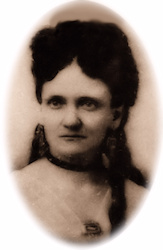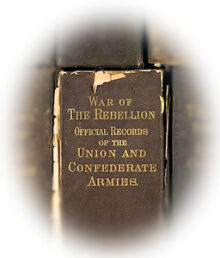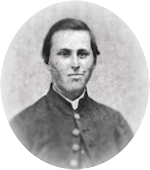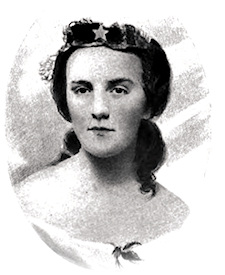Jackson, Miss., September 7, 1864.
General Braxton Bragg,
………………………….Richmond, Va.:
General: In the course of the tour of inspection made by Major B. F. Jones and myself in the State of Mississippi many facts relating to the condition of this portion of the country have presented themselves and are of sufficient importance, I think, to merit your particular attention. In pursuance of your verbal instructions given to me at Montgomery I respectfully ask leave to lay them before you in an unofficial communication.
The condition of Mississippi is truly deplorable in many respects, and the necessity for radical and thorough reforms in the administration of military affairs has everywhere suggested itself. The mass of the people are corrupted and demoralized, and in those regions of the State which lie contiguous to the enemy the disgraceful fact of subjugation is almost completed. In addition to this I believe that the administration of military affairs in some portions of the State has been unfortunate and little calculated to repress the growing evils which abound everywhere. The causes of the demoralization of the people are few and simple, but it must be admitted that they have ben singularly effective. Of the natural and unavoidable discouragement produced by the presence of the enemy upon the minds of the people at home I shall say nothing. The chief cause of the present condition of the State, however, is the irregular and unlawful traffic with the enemy that has subsisted for many months and that still goes on with undiminished vigor. There are few persons along our military frontier who have not sold cotton to the enemy. Part of this cotton trade has been authorized by the Government under various contracts. Of the gross evils that have grown out of these I need not speak, as Major Jones has already enlarged upon them.
Another branch of this cotton trade has been carried on under authority from department and district commanders, which I believe wholly unauthorized by the authorities at Richmond. For instance, Colonel Goodman, of this State, now holds a contract entered into between himself and Lieut. Gen. S. D. Lee, the terms of which grant Goodman the right to use Government cotton in exchange for supplies. There are others of the same character approved and authorized by department headquarters.
District commanders have also taken part in this all-engrossing matter. During a long interview which I had yesterday with Brigadier Gen. Wirt Adams I was informed by him that he had entered into a contract with one J. J. Smylie to procure certain supplies of his own command. General Adams believes that he has competent authority for this. In this I believe he is mistaken. His only authority, think, has emanated from department headquarters. I need not suggest the impropriety of allowing such contracts to continue. They demoralize the people, and what is worse still the army, too, and produce no results beneficial to the cause.
General Adams has granted to a few individuals in his district permission to carry private cotton through the lines for the purpose of obtaining supplies. The object of General Adams was undoubtedly a humane one and his motives have been pure, I do not doubt; but the evils that result from such a course are pernicious in the extreme. The dignity and character of our officers and army have been grossly detracted from by rumors of corruption, and the granting of every permit of this character has encouraged all kinds of injurious reports and slanders to be propagated and believed. As a natural consequence the unauthorized sale of cotton to the enemy has been greatly encouraged, few citizens hesitating to assume a privilege which they conceive to have been granted by favoritism to a few. In regard to these irregular and unauthorized transactions with the enemy, and also in relation to irregular permits granted by General Adams, I have the honor to refer you to the inclosed papers, marked Nos. 1, 2, 3 and 4. They are the only evidence that is attainable and are entitled to consideration. They certainly prove this fact, if no more, that the administration of affairs here has not been of such a nature as to escape animadversion and even suspicion. For these reasons I respectfully recommend that such instructions be issued to department and district commanders as will prohibit them from authorizing any kind of intercourse with the enemy that is not specially authorized by the authorities at Richmond.
The opinion is widely spread, even among military men, that gross and criminal collusion exists, between some of these contractors and cotton agents and the Yankee authorities, and that most of the raids made by the enemy in this portion of the State are made for the specific purpose of carrying off the cotton which said contractors, &c., have placed at convenient places along their route. In illustration of this General Adams told me of a case, the facts of which are these:
Some soi-distant French citizens at Yazoo City entered into a contract with Lieutenant-General Lee to furnish certain supplies in exchange for cotton. One hundred and twenty-nine bales of this cotton were sent to Yazoo city to await the arrival of the supplies that were due on a certain day. On the very day on which these supplies were to have reached Yazoo City a large force of the enemy moved out to that point with the evident purpose of seizing the cotton, and this was done at the instigation of the above-named French contractors, who boasted that they would thus get the cotton without the necessity of paying for it. Fortunately the cotton was destroyed by General Adams. There is no doubt, however, that the same thing has often been done in the State, and many times, with entire success.
It may be asked why the system of unauthorized blockade-running, already alluded to, has not been suppressed by the military authorities. The main reason I believe to be this: Along our lines there are many companies of “independent scouts,” who have occupied their present positions and discharged their present duties so long that they have become notoriously corrupt and inefficient. They have their price, and the blockade-runners know well how to pay it. “A pair of boots and a bottle of whisky” will scarcely ever fail, I am informed, to secure a passage for a load of cotton through the lines. Nor does this apply to “independent scouts” alone. The practice of detaching companies of cavalry and keeping them on duty along the line as scouts for a long time is productive of precisely the same results. In relation to this I respectfully ask your attention to the inclosed papers.
In view of these evils—and I cannot overdrawn them—I respectfully suggest that all companies of “independent scouts” be abrogated, and that these commands be placed upon the same footing as other commands in the field, and that in future commanding officers be required to change the scouts and pickets in their front at least once in every two weeks, making regular details for the purpose.
The effects of this cotton trade with the enemy can hardly be estimated or understood by one who has not witnessed them. The fact is that cotton, instead of contributing to our strength, has been the greatest element of our weakness here. Yankee gold is fast accomplishing what Yankee arms could never achieve—the subjugation of this people. I seriously believe that we would have been far better off to-day if all the cotton in this department had been destroyed two years ago, and it may yet be necessary for our authorities to illustrate their determination to prosecute to a successful termination this war for our independence, by applying the torch to all the cotton that remains. Many complaints from officers and others have reached me of what is termed the culpable misconduct of some of Mr. De Bow’s agents in this State. This “Cotton Loan Agency” has been a mammoth affair in this State, and many abuses and corruptions may have existed without the knowledge of its chief, Mr. De Bow. I respectfully recommend that a thorough inspection and investigation of all its operations be ordered by you.
I respectfully ask your attention to the condition of many of the military posts in this department. Most of the post commanders that I have visited have been badly instructed in the duties of their positions, because the orders and instructions intended for their governance are rarely or never sent to them from department headquarters. I have visited many of these officers who have never received or seen a single order from the Adjutant and Inspector General’s Office, and are consequently entirely ignorant of the many important duties enjoined therein. It would seem from this that great negligence exists somewhere. I am forced to the conviction that the administration of this department has hitherto been exceedingly loose and inefficient. An active, energetic, and efficient department commander is greatly needed to bring order out of chaos and to infuse life and vigor into the routine of department business. Such an officer, unencumbered for a time at least by all merely local duties, might soon rescue a productive and important portion of the Confederacy from the many abuses which now oppress and injure it.
In conclusion of this report and at the conclusion, too, of our duties in this State, I trust that the considerations which are urged below will not be considered superfluous and impertartment like this the duties of an inspector are not only great, but continuous. In order to accomplish the results desired his inspections should not only be minute, but should be repeated at intervals in order to insure the suppression of evils. In fact, the presence of an inspector is necessary almost all the time. The many reasons which support this will suggest themselves at once to you. In view of this I respectfully suggest that a permanent inspector or inspectors be assigned to a certain geographical or military district, composed of not more than two States, whose duty it shall be to accomplish such inspections as you may direct under such instructions and discretion as you may see fit to instruct. The many contracts in this department, and the importance of the quartermaster’s and subsistence departments in the States of Alabama and Mississippi, demand the constant presence of an active and energetic inspector at all times. If such a view meets your approbation, I respectfully beg leave to recommend Major B. F. Jones for that duty. It is but act of simple justice for me to give my official testimony to the singular fidelity and efficiency with which he has discharged his duties on this tour of inspection.
………………………………….I am, general, very respectfully, your obedient servant,
SAM. S. HARRIS,
Captain and Assistant Adjutant-General.
- War of the Rebellion: Serial 129 Page 0645–0649 CONFEDERATE AUTHORITIES.









